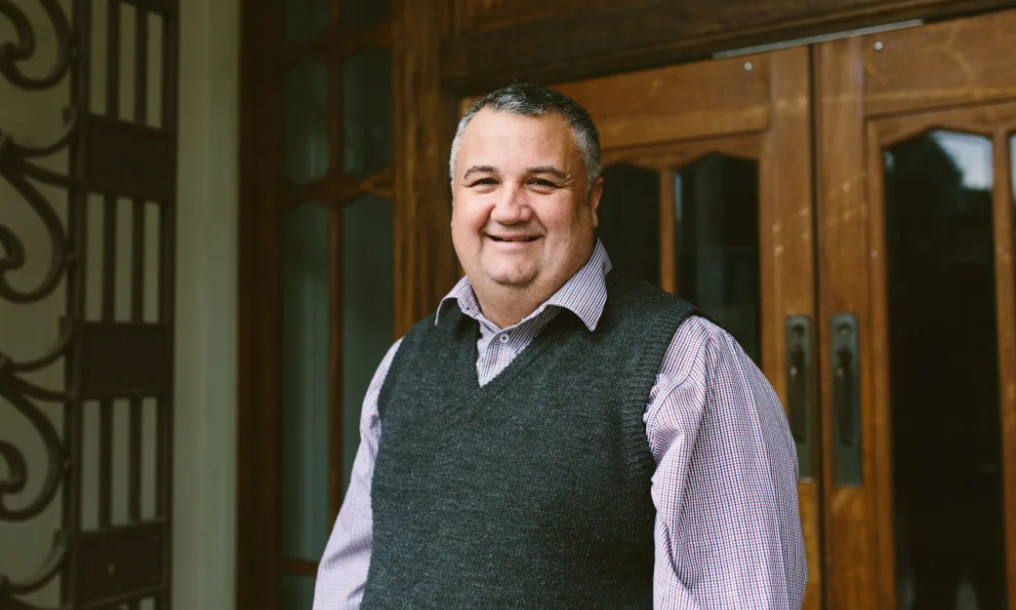Top Stories
Thousands Opt for Private Colonoscopies Amid Public Health Delays

Many New Zealanders are opting to pay for private colonoscopies as wait times for the public health system continue to grow. The crisis highlights significant staffing shortages and the challenges faced by patients requiring timely medical care. The situation is exemplified by Malcolm Mulholland, chair of Patient Voice Aotearoa, who has found himself navigating the very system he typically advocates against.
Last year, Mulholland underwent a colonoscopy that revealed polyps with a high risk of becoming cancerous. Following this diagnosis, he was classified as high-risk and advised to have annual surveillance colonoscopies. However, he received a letter in December 2023 from Health NZ stating that surveillance procedures were paused in the MidCentral health district due to staffing issues. Despite assurances of an update in June, Mulholland has yet to hear back. Faced with the choice of waiting among the 20,000 others on the public waiting list or paying out of pocket, he chose the latter and booked a private appointment for $3,000.
“We’re all led to believe that we receive universal public health from the cradle to the grave, and nothing can be further from the truth at the moment,” Mulholland stated, emphasizing the importance of timely colonoscopies in preventing cancer. Bowel cancer is the second leading cause of cancer deaths in New Zealand, with around 1,200 fatalities annually.
The rise in private colonoscopies is reflected in the statistics; approximately one-third of all colonoscopies in New Zealand are now self-funded. In 2023, there was a notable increase in publicly funded colonoscopies, with 67,500 completed. Of these, around 30% were outsourced to private providers. According to Rachel Haggerty, director of planning for hospitals at Health NZ, this strategy allows for better utilization of resources and helps in reducing wait times.
Despite a temporary surge in procedures, the backlog has grown significantly. As of May 2024, 20,450 individuals were on the waiting list for colonoscopies, with nearly 60% waiting longer than the recommended time. Health NZ aims for 90% of urgent cases to be seen within two weeks and 70% of non-urgent cases within six weeks. Yet, data for May indicated that only 82% of urgent colonoscopies met these targets, with less than half of non-urgent and surveillance procedures completed within recommended wait times.
Patients are feeling the pressure of these delays. One Auckland patient received communication indicating that only half of those requiring a non-urgent colonoscopy were seen within 13 weeks, with many waiting up to 53 weeks. While Health NZ is actively working to address these issues, private clinics in Auckland are able to offer appointments within two weeks, with prices ranging from $2,400 to $6,500 depending on the specifics of the procedure.
The increasing trend towards private colonoscopies can be attributed to heightened awareness of bowel cancer, an aging population, and the introduction of a bowel screening programme for those aged 60 to 74. Many individuals who opt for private procedures have health insurance; however, the number of self-funded colonoscopies is on the rise. According to the Southern Cross Health Society, over 32,000 colonoscopies were performed for clients in the 2025 financial year alone.
The primary cause of prolonged waitlists is a shortage of gastroenterologists. A study from 2017 revealed that some regions, including Tairāwhiti, Wairarapa, and West Coast, had no gastroenterologists at all. While the number of gastroenterologists has increased from 93 to 110, the public workforce remains insufficient to meet demand. Malcolm Arnold, a co-author of the research, suggests that New Zealand’s pay structure is not competitive with opportunities abroad, particularly in Australia, where gastroenterologists can earn significantly more.
Health NZ acknowledges at least nine vacant roles for gastroenterologists, not including other regions facing shortages. The agency is actively recruiting and implementing additional clinics to manage demand. In Mulholland’s region, MidCentral, the local gastroenterology unit is currently in a recruitment phase after losing two of its four doctors to health issues. Dr. James Irwin, a gastroenterologist in MidCentral, noted that the pause on surveillance procedures was a tough decision made to prioritize urgent cases, illustrating the difficult choices faced by healthcare providers.
The situation has led to increased anxiety among patients. Peter Huskinson, chief executive of Bowel Cancer New Zealand, expressed concern over the vague communication patients receive regarding wait times, stating that terms like “most patients will be seen within 53 weeks” can lead to uncertainty and stress. He advocates for clearer timelines and a reduction in the screening age to match Australia’s 45 years, rather than New Zealand’s planned age of 58. Huskinson also emphasized that preventing cancer through early detection is far less costly than treating advanced stages of the disease, arguing for a focus on meeting colonoscopy targets to ensure better patient outcomes.
As New Zealand grapples with these challenges, the healthcare system’s shortcomings are becoming increasingly apparent, leaving many patients to navigate a complex landscape in pursuit of timely and essential medical care.
-

 Sports1 month ago
Sports1 month agoNetball New Zealand Stands Down Dame Noeline Taurua for Series
-

 Entertainment1 month ago
Entertainment1 month agoTributes Pour In for Lachlan Rofe, Reality Star, Dead at 47
-

 Sports1 month ago
Sports1 month agoSilver Ferns Legend Laura Langman Criticizes Team’s Attitude
-

 Entertainment1 week ago
Entertainment1 week agoNew ‘Maverick’ Chaser Joins Beat the Chasers Season Finale
-

 Entertainment2 months ago
Entertainment2 months agoKhloe Kardashian Embraces Innovative Stem Cell Therapy in Mexico
-

 Sports2 months ago
Sports2 months agoGaël Monfils Set to Defend ASB Classic Title in January 2026
-

 World3 months ago
World3 months agoPolice Arrest Multiple Individuals During Funeral for Zain Taikato-Fox
-

 Politics2 weeks ago
Politics2 weeks agoNetball NZ Calls for Respect Amid Dame Taurua’s Standoff
-

 Entertainment3 weeks ago
Entertainment3 weeks agoTyson Fury’s Daughter Venezuela Gets Engaged at Birthday Bash
-

 Sports3 weeks ago
Sports3 weeks agoHeather McMahan Steps Down as Ryder Cup Host After Controversy
-

 Entertainment3 weeks ago
Entertainment3 weeks agoTyson Fury’s Daughter Venezuela Gets Engaged at Birthday Bash
-

 World2 weeks ago
World2 weeks agoNew Zealand Firefighters Plan Strike on October 17 Over Pay Disputes


















